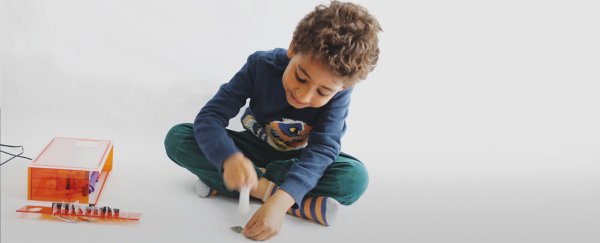
Antibiotics research sounds like the kind of thing that takes place in a very pristine lab full of people wearing very white lab coats. But it doesn't have to be that way, according to Indian industrial designer and entrepreneur Vidhi Mehta.
She's the brains behind Post/Biotics, a self-styled "citizen's science platform and toolkit" designed to let school kids (and anybody else) get involved in an ambitious crowd-sourced research project designed to find the next generation of antibiotics.
It's not just an educational initiative either, but a genuine scientific campaign of the kind that could turn out to be crucial if we're to avert health catastrophes in the future.
An alarming report released last year suggested as many as 300 million people will die prematurely by the year 2050 due to antimicrobial resistance, with infectious bacteria becoming increasingly impervious to existing antibiotic medications.
One solution? Enlist as many people as possible in the search for new antibiotics, with an app-enabled science kit that looks like a kid's toy but is actually a serious grass-roots field lab.
Post/Biotics encourages citizen scientists to test whatever natural extracts they can get their hands on – including locally sourced plants, vegetables, fruits, fungi, mushrooms, and soil – to discover substances that may demonstrate antimicrobial values.
Promoted with the question – "What if the world's next antibiotic was in your own backyard?" – the kit enables crowd-sourced drug discoverers to upload data on any remarkable samples for further analysis by researchers at Imperial College London in the UK and the University of Chicago in the US, both of which have partnered with the program.
"When people participating in Post/Biotics discover an interesting sample the platform recognises its uniqueness and sends it over for verification to university leaders," Mehta told Sammy Maine at Wired.
"Growing up in India, home remedies such as ayurveda [have] been a practice quite common to me. Garlic, honey and turmeric are often used as antimicrobials," Mehta said. "I wondered how many more local medicines and practices people across the world use and what this knowledge [could] mean to scientific researchers looking for a lead in discovering new antibiotics."
